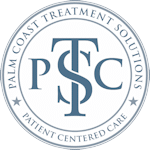Most people think that all it takes to end a substance abuse issue is to quit using the substance, and then everything goes back to normal. This is mostly because not too many people talk about what goes on during drug rehab or alcohol rehab. There is a broad range of experiences that occur in individuals with substance use disorders and mental health concerns.
Abusing any kind of substance inevitably changes how a person thinks, and most of the time, it is for the worse. Part of rehabilitation and addiction recovery is correcting this altered way of thinking. This is where individual therapy for addiction treatment comes in, as it was specifically designed to fix the damage done to the way a person thinks.
After the body is physically cleansed of the abused substance, the urge to get into it again lingers, as well as the aberrant behavior that comes with the addiction. Correcting this could need a more judicious and focused approach, and this is done solely between the patient and the therapist during individual therapy for addiction treatment.
What Is Individual Therapy and How Is It Used in Addiction Treatment?

Individual therapy, alternatively referred to as psychotherapy, counseling, or one-on-one therapy is a direct interaction between the patient and the therapist and is mostly restricted to these two only.
Some people don’t readily respond to discussing intimate details in the presence of others. This type of therapy works in coaxing the patient to open up more and therefore brings to light thoughts or emotions that could challenge further recovery. Based on medical history and the individual’s unique past, a comprehensive treatment plan can be created.
These thoughts could be sincere feelings that are causing inner turmoil, or they could be misguided assumptions that are counterproductive to recovery. Worse still, some intrusive thoughts developed during the detoxification process could lead to a relapse. Therapy aims to assist individuals in forming positive behavioral changes and better communication skills.
These are thoughts that the patient would typically keep to themselves since they know it would just get them in trouble. What is needed, however, is to address these thoughts directly in individual counseling, so that the patient understands how they are being held back by these thoughts. An individual therapy session can assist with mental health disorders and substance abuse treatment.
There are several types of individual therapy currently being used in the treatment of people with substance abuse disorders, including:
Cognitive Behavioral Therapy
Cognitive behavioral therapy (CBT) allows a person to identify the signs that a specific “trigger” is about to be experienced. These triggers are typically the ones that induce a craving to engage in substance abuse.
Cognitive behavioral therapy CBT identifies the triggers so that they don’t react with a knee-jerk response, such as engaging in substance use. Most of the time, addiction is the easiest response to such a trigger, which is another thing that CBT seeks to correct by utilizing effective methods. Knowing that there is a better way to respond to these triggers goes a long way in helping with the recovery process.
Dialectical Behavioral Therapy
Dialectical behavior therapy (DBT) is similar to CBT in that it also helps identify the triggers that lead to addiction urges and create a better response to them. The therapeutic elements in individual sessions help the patient foster healthy attachments and healthy relationships.
The difference lies in that DBT also focuses on regulating a person’s emotions regarding the triggers, teaching them the value of acceptance and handling stress in a more positive manner. This model of individual substance abuse counseling offers an acceptance approach to therapy more than other therapies.
Dialectical behavior therapy sessions can be individual therapy or group therapy for substance abuse and mental health. This talk therapy addresses behavioral health issues and more specifically, it was created to treat borderline personality disorder. According to the National Institute of Health, about 78% of adults with borderline personality disorder also develop a substance use disorder, due to impulsivity and being clinically less stable.
DBT was initially intended to help people with self-destructive behavior, and addiction is one of the most self-destructive activities one could ever get into, along with drug or alcohol cravings. For many, difficulty in dealing with personal triggers stems from an inability to accept what is happening. DBT focuses on a treatment plan that teaches the value of acceptance, as this is the best way to start managing one’s emotions.
Trauma-Focused Therapy
Not everyone is equipped to deal with emotional and mental trauma. For those who could not, addiction becomes a quick fix of sorts, as it allows them a temporary escape from the trauma. Individual therapy is well fitted in this scenario because the trauma could be so painful that the patient will not readily discuss it.
The intimate and confidential setting of individual therapy gives the patient a more secure and private environment to open up about their traumas so that they may be better addressed. That is one of the big differences between individual therapy for addiction and mental health vs group therapy. General group therapy sessions are with other group members.

What to Expect During an Individual Substance Abuse Counseling Session
The first and most important expectation that one could have from an individual substance abuse counseling session is recovery and being free from addiction urges. Individual therapy is a powerful therapeutic tool and there are benefits of individual therapy. Individual counseling will assist with a variety of mental health issues over an extended period of time.
There are, however, some other things that one could expect from the experience, all geared towards addressing what it is that makes rehabilitation and recovery difficult for a person.
Privacy and Confidentiality
Addiction is never a public thing, and neither are the traumatic events that led a person to get into it. The privacy and confidentiality offered by individual therapy set the stage for the patient to open up and get things off their chest, as these things could lead to the understanding and closure of what caused them to engage in substance abuse.
Getting to the root of what led the patient to drug or alcohol use can work wonders in the recovery process. The treatment process isn’t going to be an easy road, but it will be worth it. Addiction recovery takes many groups organized all aimed to help one cause.
Moral and Emotional Support
While therapy is all about bringing out things that may not necessarily be socially acceptable, such as addiction and the trauma that led to it, it is also not about recrimination. The last thing the person in therapy needs is to be put in the spotlight and have a light shone on all their faults. This is where the importance of having peer support and family members comes in.
Individual therapy fosters an atmosphere of acceptance that things happened, and that the wrong response to these things led to substance abuse. There is also a need to make the person understand that all of these things could be fixed once they get better and decide not to do it all again.
There should be no shame that the patient decided to abuse substances or abuse alcohol. As a loved one of someone struggling, the sole mission should be to get the person into a treatment center for mental health, drug abuse, and/or alcohol abuse.
Healthy and Honest Conversation
The best thing to come out during therapy is the truth. Once it is out, results and correct conclusions are sure to follow. Regardless if it is an embarrassing truth or just something best not discussed, it needs to be brought out if it helps to resolve the issues that led to drug addiction or alcohol addiction.
Lying is something that many people suffering from addiction resort to, as it sometimes helps them get away with what they are doing. Lying in therapy, however, will not help in the slightest, and only prolong the process of recovery. For this reason, communication skills are so important and will be addressed in one on one therapy.
In-Depth Realizations and Resolutions
Although many people would admit that they realized what they were doing while getting hooked on substances was wrong, the real realization could only come out during therapy sessions. Just admitting they were wrong about it could not do much, since they still engaged in addiction.
The realization needed in individual substance abuse counseling is the one that leads to a resolution of recovery and not getting into addiction ever again. Although difficult, this is necessary, and individual therapy is tailored to bring about this outcome as much as possible.

Contact Us
CALL US NOW
Palm Coast Treatment Centers will iron out the details for you in a manner that will make you confident in your path to sobriety. That first simple call is your ticket to making Palm Coast Treatment Centers your solution for addiction. Get the freedom from addiction that you deserve today.
Call Us Now: (386) 284-4151What Are the Benefits of Individual Substance Abuse Counseling?
The ultimate goal of individual therapy for addiction is to allow the patient to reach the point where they have enough mental clarity and personal conviction to not get back into their bad habit. There are several benefits of individual therapy that assist in addiction recovery.
Along the way, however, people undergoing individual counseling do tend to pick up quite a few more benefits:
- Build better understanding and acceptance
- Identify the triggers that lead to alcohol addiction or drug addiction
- Create a healthy and solid frame of mind
- Learn effective and helpful coping skills
- Improve social and communication skills
Your Recovery Could Begin Today at Palm Coast Treatment Solutions
Through experience, we know that the only lasting solution to substance abuse is treatment and behavioral therapies. This is why we have focused all our efforts on crafting the most effective treatment solutions to help people with addiction and mental health issues. Individual substance abuse counseling provides an intimate setting to explore your inner health.
Talk to us today and get a better understanding of the help that we offer. Our treatments are not just quick-fix solutions. They are straight paths to betterment and recovery.

Years of experience
Our leadership team has extensive experience in dual-diagnosis treatment and is ready to help those who are struggling with substance use and mental health.

Specialists
Our staff consists of many licensed addiction and mental health treatment facilitators and other staff who are ready to share their experience and their success.

Happy patients
Palm Coast Treatment Centers has helped over 2,000 people who have struggled with substance use and mental health to find road to recovery.
Contact Us
GET IN TOUCH
Reaching out to Palm Coast Treatment Centers may be the most important call of your recovery process. A caring professional is waiting for your call to be your guide to addiction-free living.
 info@shc.health
info@shc.health 

